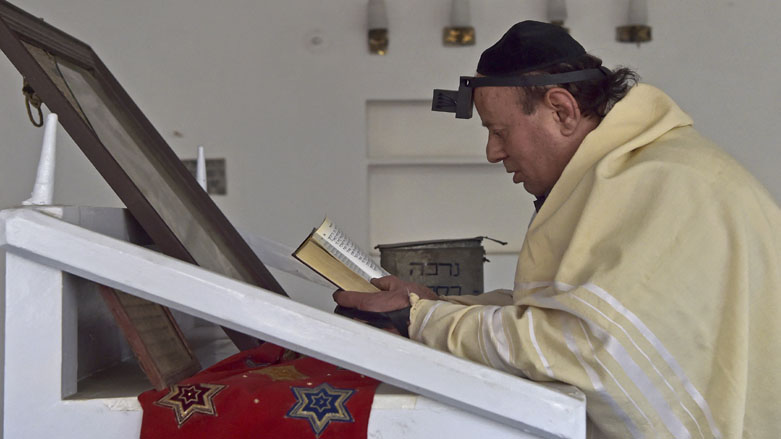Afghanistan's last Jew eyes exit ahead of Taliban return
"The Taliban are still the same as 21 years ago," Zebulon Simentov said.

For decades, Zebulon Simentov refused to leave Afghanistan – surviving a Soviet invasion, deadly civil war, brutal rule by the Taliban and the US-led occupation of his homeland.
But enough is enough for Afghanistan's last Jew, and the prospect of the Taliban's return has him preparing to say goodbye.
"Why should I stay? They call me an infidel," Simentov told AFP at Kabul's only synagogue, housed in an old building in the center of the Afghan capital.
"I'm the last, the only Jew in Afghanistan ... It could get worse for me here. I have decided to leave for Israel if the Taliban returns."
That appears likely given the deal struck by Washington to withdraw all US forces by later this year, and ongoing peace talks between the insurgents and the Afghan government.
Born in the 1950s in the western city of Herat, Simentov moved to Kabul during the Soviet invasion in the early 1980s for the capital's then relative stability.
Jews lived in Afghanistan for more than 2,500 years, with tens of thousands once residing in Herat, where four synagogues still stand – testimony to the community's ancient presence.
But they have steadily left the country since the 19th century, with many now living in Israel.
Over the decades, all Simentov's relatives left – including his wife and two daughters.
He is now certain he is the last Afghan Jew in the country.
Dressed in a traditional Afghan tunic and trousers, a black Jewish kippah and tefillin on his forehead, Simentov fondly remembers the years before the Soviet war as the best time for Afghanistan.
"Followers of every religion and sect had full freedom at that time," said Simentov, who calls himself a proud Afghan.
Synagogue Raided
But events since have made him bitter – particularly the Taliban rule from 1996 to 2001, when the Islamists tried to convert him.
"This disgraceful Taliban regime put me in prison four times," he said.
In one incident they ransacked the temple – a large room painted in white with an altar at one end – tore books in Hebrew text, broke Menorahs and took away the antique Torah, he said, still simmering with anger.
"The Taliban said this is the Islamic Emirate and Jews had no rights here," he said.
Still, he refused to leave.
"I have resisted. I have made the religion of Moses proud here," Simentov said, kissing the floor of the synagogue.
He continues to mark the Jewish new year Rosh Hashanah and Yom Kippur holidays at the synagogue – sometimes even accompanied by Muslim friends.
Lost Faith
"If it weren't for me, the synagogue would have been sold 10, 20 times by now," he said, as he limped across to his living quarters next to the temple.
Simentov, who lives off handouts from friends and relatives, prepares his meals on a small gas stove placed on a red carpet in the room.
On a table in a corner are some books and old photographs of his daughters.
He says when the Taliban were ousted in 2001, he believed Afghanistan would prosper.
"I thought the Europeans and Americans would fix this country ... but that didn't happen," he said.
Simentov's neighbors will be sorry to see him go.
"He is a good man," said Shakir Azizi, who owns a grocery store in front of the synagogue.
"He has been my customer for 20 years. If he leaves, we will miss him and his presence."
But Simentov fears what lies ahead if he stays.
"The Taliban are still the same as 21 years ago," he said.
"I have lost faith in Afghanistan ... there is no more life here."